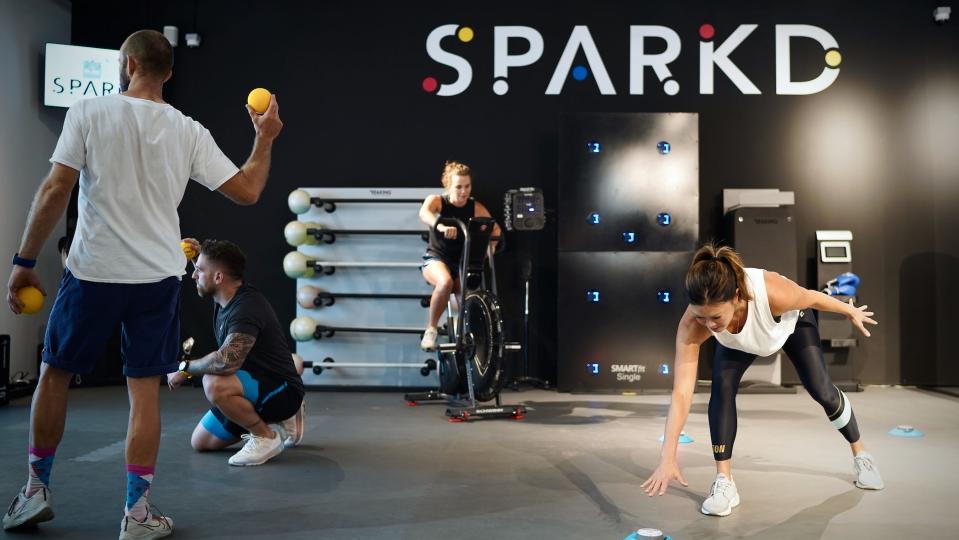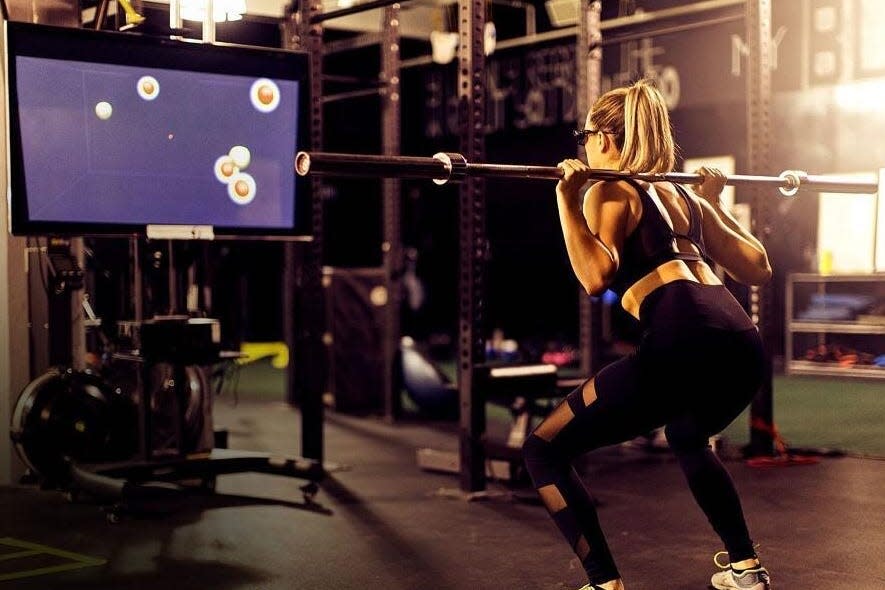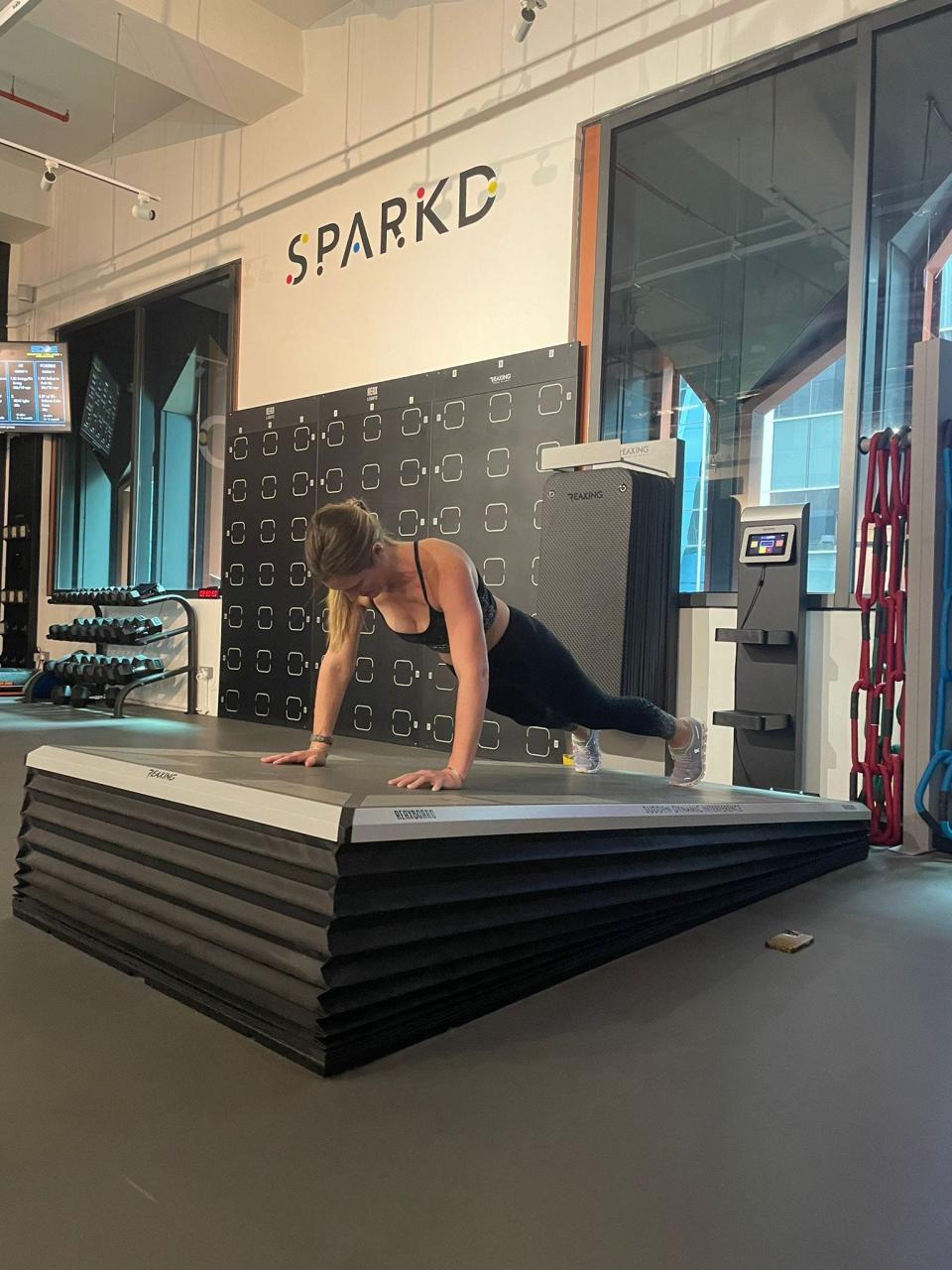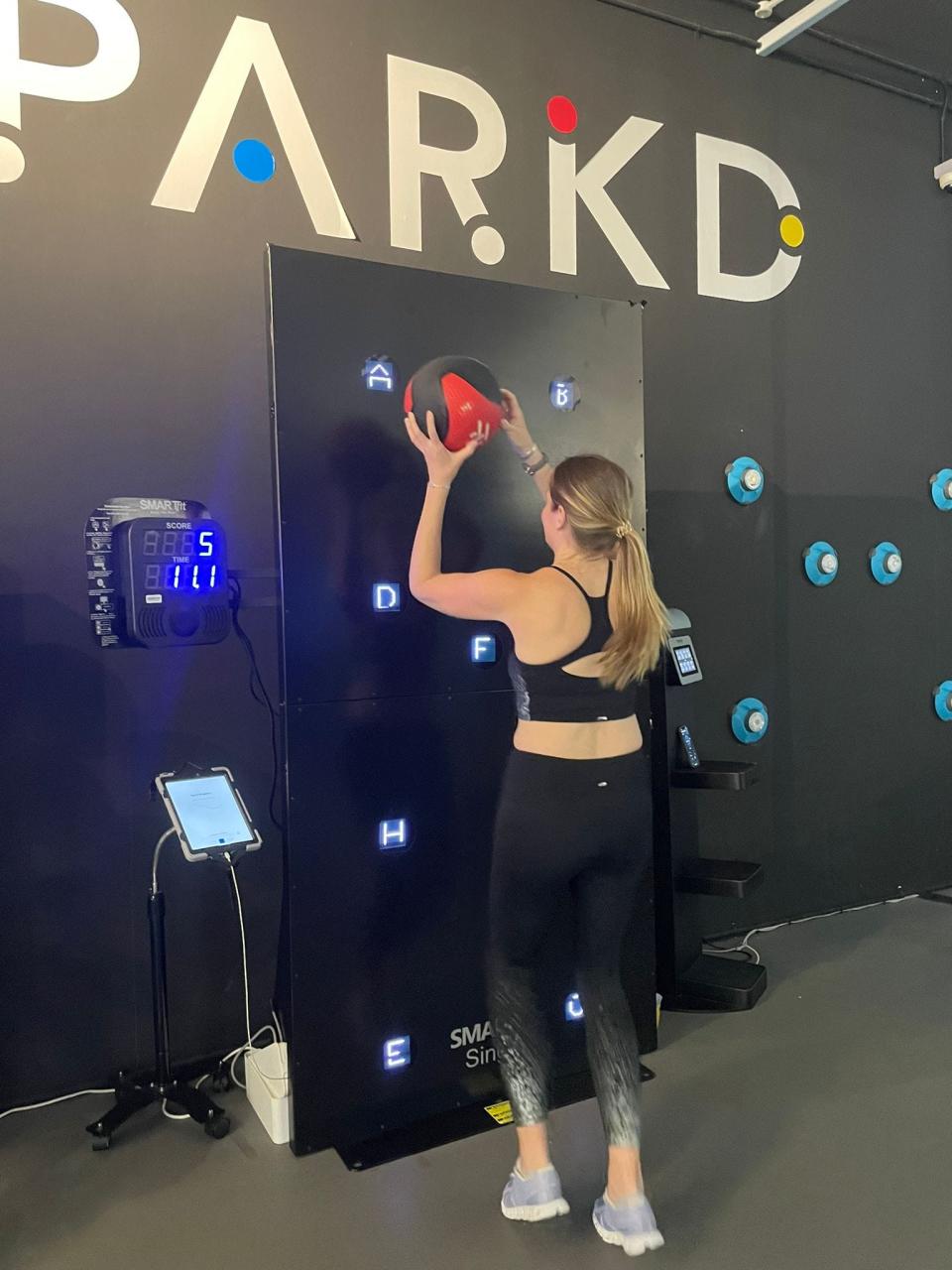I went to the elite personal training gym for traders that works your mind and your body at the same time. This may be the future of fitness.
High-end fitness gyms are just starting to invest in cognitive training.
The idea is that you can work out your mind and body together, boosting memory and reaction time.
A gym in Singapore is one of the first to properly test this idea out. We paid a visit.
I want to play this mind game every day. I can't stop thinking about how fantastically clear-headed I feel.
My mind is lighting up, my reflexes feel sharp, and my focus is renewed.
I'm not the only one. Formula 1 racers. Professional athletes in the NFL and Premier League. Fighter pilots. Even stock traders love this six-minute game.
I'm in Singapore — arguably ground zero for healthy aging research and development. Trainer Anna Milani, who owns Sparkd, one of the only mind-body fitness gyms in the world, has just invited me in for a tour of her business.
Her exercise space is a funhouse for grown-ups, located in the middle of downtown Singapore's financial district, the Asian banking capital. The treadmill ramps up and down in all four directions, the barbells have slime-like dynamic weights sloshing around inside, and there's a virtual soccer simulator wall. It's hard for clients to get bored here, she tells me, and I believe her.

The most mind-blowing toy in the space is sitting in the corner. It's the NeuroTracker, a brain game developed more than 14 years ago by a Canadian visual perception scientist
It's still a somewhat controversial device. Independent experts in sports science say it seems like it has decent potential for improving our attention, memory, and processing speeds, but more rigorous independent research is needed to understand to what extent it's a placebo effect. And yet, franchises and high-profile athletes around the world are snapping it up. The US Air Force, Manchester United, and the Atlanta Falcons have all used it.
Singapore is modeling the brain-body workout of the future

At first glance, the NeuroTracker looks like a slightly boring video game you play while wearing 3D glasses. Just some neon green balls moving around on a computer screen. After one session, roughly six minutes of wearing blue and red glasses and staring at the screen, I (a skeptical reporter) am surprised by how I'm feeling. I think … I get it.
"Stay focused," Milani says, encouraging me along with the NeuroTracker. It feels surprisingly energizing to give this kind of singular attention to the task of watching balls on a screen. This is ostensibly training my brain to focus, and improving my working memory.

The neuro-tracking is just one fundamental part of Milani's gym. Here, exercisers are always working on both their physical and mental agility. I'm not doing my planks on the ground, I'm doing them (or, attempting to, anyway) on a moving platform that challenges my balance. Instead of staring at a wall while I do squats with a medicine ball, Milani has me doing a memory game with letters and numbers. This is not zone-out-and-clear-your-mind cardio. This is total performance enhancement. And emerging business interest from gyms around the globe is starting to crop up around the idea.
As we age, and proprioception (our awareness of our own body in space) declines, it often gets harder to perform physical and mental tasks in tandem. Even walking and talking. Milani, a former dancer, says she started noticing subtle changes in herself once she hit her 40s; that's what prompted her to found this space about four years ago.

Her first-of-its-kind brain gym is already popular with many of Singapore's longevity-focused business executives. The same guys who spend their days buying and selling companies and their spare time tracking their biological age are here regularly, Milani tells me.
Nothing like it really exists yet in the US — unless you're a pro athlete. Pro athletes in the NFL, NBA, NHL, and MLB have incorporated Neurotracker into their training to level up. One college athlete credits the technology with helping her win a gold medal at the Winter Olympics. Online stock traders (29 of them, all men) also recently used it to gauge whether they were having an off day.
If their scores from six-minute tracking sessions dipped well below their own baseline, they could take the day off, knowing their performance wasn't likely to be up to par.
Brain training for longevity is still squishy science, for now
But this training could soon be rolled out wider, buoyed by some research that suggests benefits. In one study Neurotracker conducted at a major hospital in Mexico City, older adults with mild dementia and memory issues had better fine motor control and hand-eye coordination after about 90 minutes of the training.
Lee Sidebottom, NeuroTracker's director of concept applications, told Business Insider the company is in a late-stage partnership deal with "one of the major fitness chains in the US" (though the company wouldn't say which one). Gyms and clubs leaning harder into the longevity space are looking at Milani as an example.
"They're all kind of discussing it, and feel like they have a need to bring in the cognitive dimension to the physical fitness," Sidebottom said. "We see increases in physical reaction time, we see improvements in auditory processes."
But independent sports scientists aren't totally sure about that. A 2021 systematic review of Neurotracker studies found that the company tends to overstate its data, and that more people need to test out this tech to know for sure that the results aren't just indicative of false positives and a placebo effect.
As I step out onto the sparkling-clean Singaporean pavement, jumping to dart around mid-afternoon rain puddles in the tropical heat, I feel refreshed and sharp.
It would be impossible for me to disentangle exactly how much of that feeling could be attributed to the physical workout I just did, how much of it was the mental exercises, and how much may be a placebo effect, but I relished the good feeling all afternoon.
Read the original article on Business Insider


